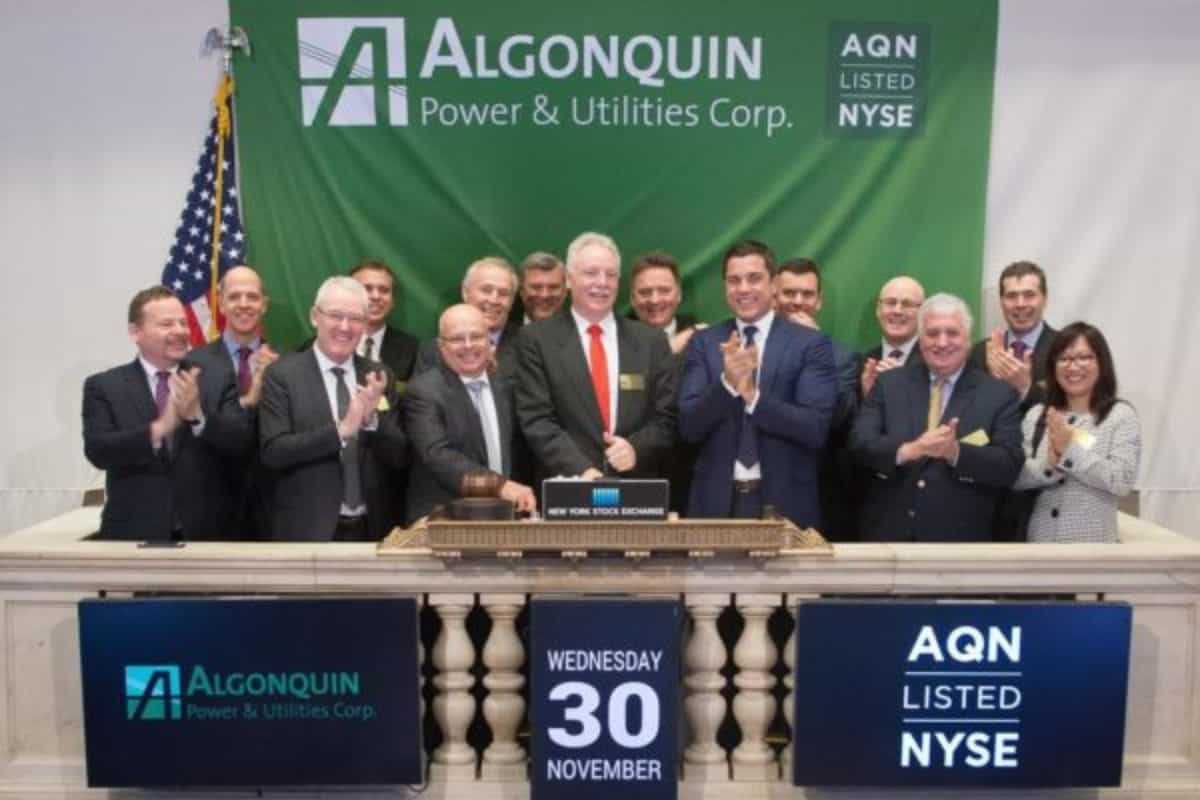
The stock has been dropping for much of 2021 but investors shouldn’t fret about Algonquin Power & Utilities (Algonquin Power & Utilities Stock Quote, Charts, News, Analysts, Financials TSX:AQN), according to Varun Anand of Starlight Capital. Anand says far from being a problem, Algonquin at its current price is starting to look like a super pickup.
“Is it cheap? No, but would I say it’s still a buying opportunity? Yes,” said Anand, vice president and senior portfolio manager at Starlight, who spoke on BNN Bloomberg on Wednesday.
Algonquin Power, which owns and operates renewable energy projects along with water, electric and natural gas utility distribution and transmission systems, was on quite a roll in recent years as the market took a shine to renewable energy plays across the board. Over 2019 and 2020, the stock returned a huge 55 per cent — perhaps not amazing compared to some growth names in the tech space delivering triple digits but a big return nonetheless for a high-dividend payer like AQN coming from an overall defensive sector like Utilities (Algonquin’s current dividend yield is 4.9 per cent).
But this year, the renewable energy space has had it rough. Starting in around February stocks began falling and now into December names like Algonquin, Northland Power and Brookfield Renewable Partners all look like they’ll be finishing 2021 under water. In Algonquin’s case, the stock is down almost 18 per cent year-to-date.
But Anand says there’s too much to like about Algonquin to be concerned about the more recent drop in share price, starting with its tested and true strategy for acquiring assets and expanding its operations.
“Basically, what you’ve seen is that the Canadian utilities have sold off with expectations for higher rates, which obviously result in higher discount rates,” Anand said. “And then Algonquin also just announced an acquisition of Kentucky Power and raised some equity. So, those have been the two big overhangs on the stock.”
“But when you look at what Algonquin has done historically where they buy underperforming utilities in the US they improve operations, they improve return on equity and generate more free cash flow to them. They’re just doing the same playbook again,” he said.
Algonquin announced in late October an agreement to buy Kentucky Power and AEP Kentucky Transmission Company from Ohio-based American Electric Power for $2.846 bilion including $1.221 billion in debt. The move has raised eyebrows as American Electric has framed the deal as a way for it to divest itself of coal- and gas-fired power plants in a move to a more climate-friendly approach to power generation.
But Algonquin said it plans to shut down those fossil fuel-based operations and replace them with greener options, saying Kentucky’s infrastructure is the key piece of the puzzle.
Algonquin President and CEO Arun Banskota called the purchase part of his company’s plan to get to net-zero greenhouse gas emissions by 2050 and that Kentucky should be accretive to AQN’s adjusted net earnings per share in the first full year of ownership.
“The acquisition of Kentucky Power and Kentucky TransCo is a continuation of AQN’s disciplined growth strategy, adding to its regulated footprint in the United States. Kentucky Power offers an opportunity for AQN to utilize its ‘greening the fleet’ capabilities in a complementary and constructive jurisdiction,” Banskota said in a press release.
“Including Kentucky Power under the AQN umbrella also enables AQN to leverage its operational experience to improve customer outcomes in Kentucky by executing on AQN’s core values of providing safe and reliable service to its customers,” he said.
Anand seems to agree with that sentiment and, further, that investors who don’t already own Algonquin Power should be thinking about the stock for their portfolios.
“With Kentucky Power, I actually think it is a strategic fit for them. And they didn’t overpay for it, which is important in this kind of market,” Anand said.
“I would say that while they’re not screaming cheap because obviously not many stocks in the stock market today are cheap. There is still upside because when you bake in higher earnings out of Kentucky power as well as their greening the fleet initiative across the utility assets in the US there’s still a lot of growth for Algonquin here and that’s underpinned by the cash flows of the underlying businesses,” he said.
“So, we do like Algonquin. We’ve owned it in the fund and I’ve been accumulating shares now, and if we were to drop another, say, ten to 15 per cent, we would be very aggressive in accumulating more shares — at that point then you can actually say, yes, Algonquin is cheap,” Anand said. “But again, I’m not saying right now that there’s no upside or that it’s expensive. It’s just it’s all relative on a scale of cheapness to priciness.”
Leave a Reply
You must be logged in to post a comment.




 Share
Share Tweet
Tweet Share
Share




Comment